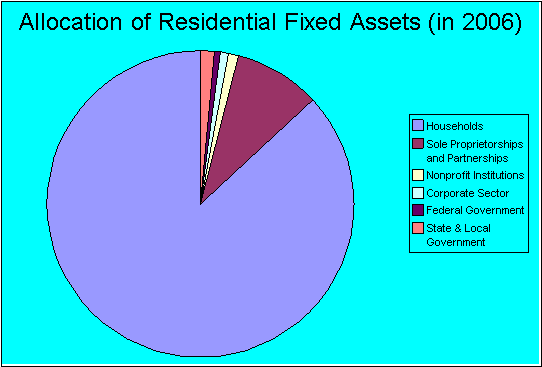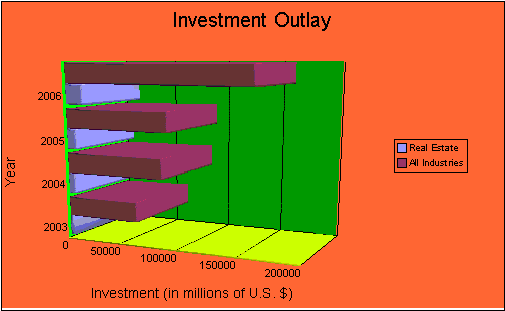USA Real Estate Investments
Please note that we are not authorised to provide any investment advice. The content on this page is for information purposes only.
[br] Real Estate Investment: How is it valuable in US Investment in real estate has promised attractive returns over the last century. The However real estate investment in US is not a sure thing any more. Home sales has declined in recent months and according to latest report, the descent continued in June 2007. Industry experts have expressed the apprehensive mood predicting that the deceleration can last until at least 2009. This dismal forecast is applicable not for individuals alone.
U.S. Real Estate: an inner view
Let us first have a glimpse of the current status of U.S. economy. According to U.S. Bureau of Economic Analysis, per capita income in U.S. registered a growth rate of 5.2 percent in 2006 as against 4.2 percent in 2005 whereas inflation (national price index for consumption expenditures) declined from 2.9 percent to 2.8 percent. The Economic Report of the President, February 2007 predicts real consumer spending to record a growth of less than 3 percent in 2007 as against an average of 3.5 percent in the past three years.
A look at the housing price index (deflated by consumer price index) suggests that housing prices grew by 2.6 percent in the first three quarters of 2006 as against an average annual growth rate of 6.4 percent for 2000-2005. This upward movement in the last five years however was not uniform across regions. For example, high profile markets like Los Angeles saw a 14.3 percent ascension. The Economic Report of the President underscores movement of regional economic indicators, local regulations etc. as the reason for this. However a drop in mortgage rates may have been the medium for pervasion of these endemic idiosyncrasies throughout the nation
The trend followed by residential investment has great affinity with that of housing prices. The rates on conventional mortgages crawled up by 70 basis points during the period October 2005-July 2006. This culminated into a 27 percent fall in the sale of new homes. The builders pessimistic view of this crisis situation outweighed the bettered sales of August-December 2006 so that the year saw a 29.5 percent drop in the number of houses built. The pie chart presented below clearly depict the current cost net stock (yearend estimates) of residential fixed assets (in billions of US $) for 2006.
The decay of residential investment however is not the whole story. Growth in real GDP, employment and real consumer spending was decent throughout. This was in fact counterbalanced by nonresidential constructions such as factories, office buildings, lodging facilities, shopping centers, recreational structures etc. Nonresidential construction grew by 12 percent in 2006 against 2 percent in 2005.

Source: Bureau of Economic Analysis, U.S. Department of Commerce
The real estate industry of U.S. has seen huge inflows of foreign investments in last few years. This is because property deals in U.S. are lot more open and transparent than other countries. The other factors influencing investor’s decision are: an excellent turnover rate, availability of sufficient real estate of investment-grade, easy exit etc. The trend of investment in the real estate sector for the last four years has been manifested below

Source: Bureau of Economic Analysis, U.S. Department of Commerce (Revised Estimates for 2005 and Preliminary Estimates for 2006) The latest factor that encouraged foreign investors to investment in U.S real estate market is the depreciation of U.S. dollar with respect to their currency. This happened because of huge U.S. trade deficits. But foreign investors are aware that U.S. will see strong economic growth in the coming years thus making the dollar strong and giving them a higher value when converted to home country currency. However, The Economic Report of the President, February 2007 has a gloomy outlook and expects that until 2008, the residential sector will be unable to contribute significantly to real GDP growth.
A word about investing in any Real Estate Fund [br]
A real estate investment fund in USA is basically a means to diversify and rarely represents a complete investment program. The price of a share may be above or below its original cost at the time of redemption. This happens because of fluctuations in the principal value of the fund and the investment returns. This exposes the fund to market risks such as real estate sector risk, portfolio turnover risk, illiquid assets risk, borrowing risk etc.
Is it possible to ‘Get Rich Quick’?
The books, late night TV shows and cassette tapes containing info-commercials with promising tips to enhanced success in the real estate market are usually irrelevant. Those making a fortune in this market are either lucky or have an in depth (not superficial) knowledge of reality in realty.
Real estate investment in U.S. is dominated by home ownership purposes. There are many tax advantages making owning cheaper than renting. Those planning to stay for a longer period are surely better off purchasing a home and living in it rather than thinking of investment




